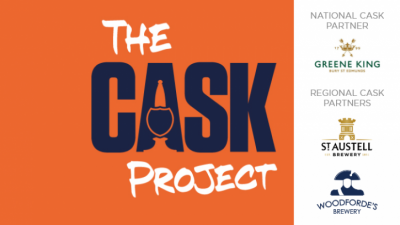OPINION
OPINION: Could ‘Fresh Ale’ be cask’s saviour?

A handpull on a bar signifies to me fresh live beer, expertly handled and conditioned in the cellar by a skilled professional. Lightly sparkled, cellar cool and full of appetising flavours and aromas.
How often does this expectation match the reality? It’s a bit hit and miss to be honest. I know the pubs I trust and Cask Marque accreditation is usually a good indicator that the publican knows what they’re doing with cask.
Publicans know the benefits of stocking cask because it’s been drilled into them: cask drinkers visit pubs more frequently than other drinkers, they spend more per head than other drinkers and they’re massively influential among peer drinkers when deciding which venue to visit.
But cask is also – for many publicans – a bloody nightmare. It’s time consuming, it delivers one of the lowest margins and it’s got the shortest shelf life of any product served across the bar. (Traditional cask ale needs to be sold within three days of going on sale because of the live nature of the product).
If cask is done right, and a pub gains a reputation as a cask ale specialist, it can be a saviour. But if cask is a mandatory ‘must-stock’, enforced on the operator as it is with many outlets, it can be a millstone round a business’s neck.
There are key challenges facing the cask category, not least the number of cask stockists that don’t have the throughputs to maintain quality. We’re already seeing cask disappear from bars because it’s just not sustainable commercially.
‘None of the risks’
Cue the launch of ‘Fresh Ale’ by Carlsberg Marston’s Brewing Company (CMBC). This is a product that allows licensees to serve ‘cask-style beer’ from kegs through a handpull.
According to CMBC, Fresh Ale is brewery conditioned with the yeast filtered out and remains unpasteurised so “consumers get the same kind of experience as cask but for retailers it lasts for 14 days rather than 3 days”.
With my commercial head on (I was a publican for many years), I recognise the innovation of Fresh Ale allows operators to reap all the benefits of stocking cask with none of the risks.
It’s packaged in kegs; it’s dispensed under a “light gas pressure” but perhaps most controversially, it’s dispensed through a handpull, the bastion of real ale.
As an enthusiastic cask drinker, it makes me slightly uncomfortable that I might not know what I’m drinking when I order a pint dispensed through a handpull. Is it real ale, or is it something masquerading as cask?
For balance, let’s look at both sides of the coin.
The Campaign for Real Ale (CAMRA) has intervened and objected to the messaging around Fresh Ale. The organisation argues that handpulls have long been the easily recognisable sign of the freshness and quality of cask beer. They claim it’s a deliberate attempt to dupe and confuse consumers.
Sacred to real ale
I’m in agreement with CAMRA’s point about handpulls. These are sacred to real ale; they signify a unique beer style familiar to millions of consumers.
However, I don’t think CMBC has set out to deliberately ‘dupe and confuse consumers’. They observed what Otter Brewery (a perfectly respectable cask producing brewery with an excellent reputation for cask ale) had been doing for more than a year and scaled it up.
Additionally, it could be argued that drinkers disillusioned with the variable quality of traditional cask ale may be drawn back to the category. Optimistically, could Fresh Ale turn around the fortunes of ‘real ale’?
The cask category is fundamentally broken in its current state and innovation in the cask ale category is critical to attracting a future generation of drinkers.
I’m a great believer that when cask is done well in its current format, it can transform a business. It needs to shrink and be cared for by experts and specialist outlets in order to return to growth. Die-hard cask drinkers will always seek it out, guaranteed.
But if cask is dragging a business under, it needs to be delisted and replaced with something different altogether.
The proof of whether that is CMBC’s Fresh Ale is yet to be seen.
- Annabel Smith is an award-winning educator, writer, and broadcaster. She was a licensee for 10 years before moving to a training role at Diageo GB. She is currently head of training at the Cask Marque Trust and is a freelance beer sommelier operating as BeerBelle.








